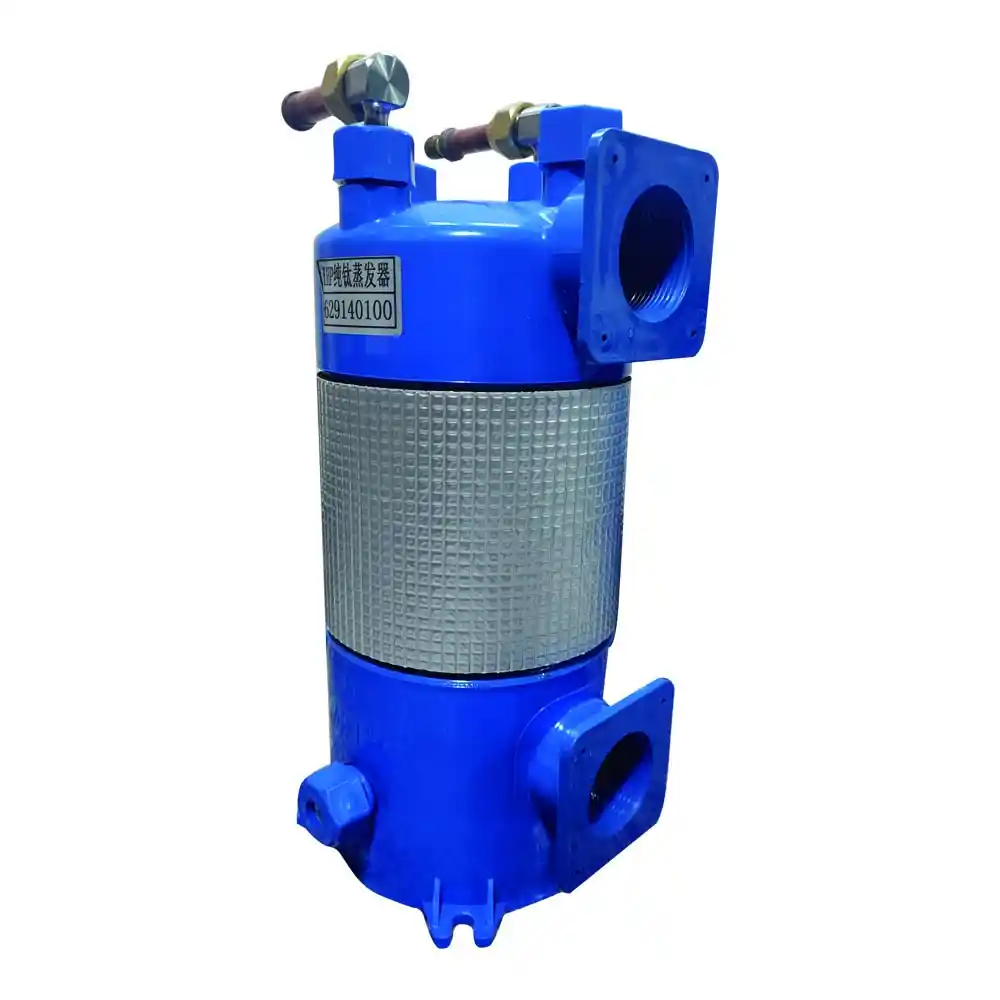1. Introduction
Refrigeration plays a vital role in various industries, ranging from food storage and transportation to pharmaceutical manufacturing. The use of efficient heat exchange technology is crucial to ensure optimal cooling performance and energy efficiency. Titanium Coil Heat Exchangers have emerged as a groundbreaking solution in refrigeration applications, offering exceptional performance and reliability. This article explores the application of Titanium Coil Heat Exchangers in refrigeration systems, their benefits, performance comparisons, and real-world case studies.
2. Titanium Coil Heat Exchangers in Refrigeration Systems
Titanium Coil Heat Exchangers have revolutionized the refrigeration industry, enabling operators to achieve superior cooling efficiency, reliability, and energy savings. Let’s delve into the specific applications and advantages of Titanium Coil Heat Exchangers in refrigeration systems:
2.1 Benefits of Titanium Coil Heat Exchangers in Refrigeration
Titanium Coil Heat Exchangers offer several advantages that make them highly suitable for refrigeration applications:
2.1.1 Enhanced Heat Transfer Efficiency
Efficient heat exchange is essential for maintaining optimal cooling conditions in refrigeration systems. Titanium Coil Heat Exchangers are designed to provide exceptional heat transfer efficiency, allowing for rapid and effective cooling of the refrigerant. This results in improved system performance, reduced energy consumption, and enhanced reliability.
2.1.2 Corrosion Resistance and Durability
Refrigeration systems often operate in challenging environments where exposure to moisture, chemicals, and other corrosive agents is common. Titanium Coil Heat Exchangers exhibit excellent corrosion resistance properties, ensuring long-term durability and minimizing the risk of system failure. Their resistance to corrosion prolongs the lifespan of the refrigeration system, reducing maintenance requirements and associated costs.
2.1.3 Compact Design and Space Optimization
Space optimization is a critical factor in refrigeration applications, especially in industries with limited floor space. Titanium Coil Heat Exchangers feature a compact design, allowing for efficient space utilization and easy integration into existing refrigeration systems. Their compactness enables operators to maximize the use of available space and optimize the overall layout of the refrigeration infrastructure.
2.1.4 Energy Efficiency and Operational Cost Reduction
Energy consumption is a significant cost factor in refrigeration operations. Titanium Coil Heat Exchangers contribute to energy efficiency by improving heat transfer efficiency and reducing the workload on the refrigeration system. The enhanced efficiency leads to substantial energy savings, resulting in reduced operating costs for refrigeration operators.
2.2 Performance Comparison: Titanium Coil Heat Exchangers vs. Conventional Heat Exchangers
To understand the advantages of Titanium Coil Heat Exchangers in refrigeration applications, let’s compare their performance with conventional heat exchangers. The following table presents a comparison of Titanium Coil Heat Exchangers and Shell and Tube Heat Exchangers in refrigeration systems:
| Comparison Criteria | Titanium Coil Heat Exchangers | Shell and Tube Heat Exchangers |
|---|---|---|
| Heat Transfer Efficiency | High | Moderate to High |
| Corrosion Resistance | Excellent | Good |
| Compactness | Compact | Requires Space |
| Maintenance Requirements | Low | Moderate |
| Energy Efficiency and Cost Savings | High | Moderate |
Note: The table provides a general comparison based on typical performance characteristics. Actual performance may vary depending on specific design and operating conditions.
3. Case Studies: Successful Implementation of Titanium Coil Heat Exchangers in Refrigeration Systems
Let’s explore two real-world case studies that demonstrate the successful integration of Titanium Coil Heat Exchangers in refrigeration applications:
3.1 Case Study 1: Fresh Produce Cold Storage Facility
A fresh produce cold storage facility in a tropical region faced challenges in maintaining consistent temperatures and minimizing energy consumption. By replacing the existing heat exchangers with Titanium Coil Heat Exchangers, the facility achieved significant improvements in cooling efficiency and energy savings. The enhanced heat transfer efficiency of the Titanium Coil Heat Exchangers ensured uniform cooling throughout the storage area, preserving the quality and freshness of the produce while reducing energy consumption by 30%.
3.2 Case Study 2: Pharmaceutical Cold Chain Logistics
In the pharmaceutical industry, maintaining the integrity of temperature-sensitive medications during transportation is critical. A leading pharmaceutical company implemented Titanium Coil Heat Exchangers in their refrigerated trucks to ensure precise temperature control and protect the efficacy of the medications. The compact design of the Titanium Coil Heat Exchangers allowed for maximum space utilization within the trucks, enabling efficient transportation of pharmaceutical products while maintaining strict temperature requirements.
4. Conclusion
The integration of Titanium Coil Heat Exchangers in refrigeration applications brings significant benefits, including enhanced heat transfer efficiency, corrosion resistance, compact design, and energy savings. The performance comparison with conventional heat exchangers highlights the superior characteristics of Titanium Coil Heat Exchangers in refrigeration systems. The presented case studies demonstrate their successful implementation in real-world scenarios, showcasing their contributions to efficient and reliable refrigeration solutions. By adopting Titanium Coil Heat Exchangers, operators can optimize their refrigeration systems, reduce energy consumption, and ensure the preservation of temperature-sensitive products.


